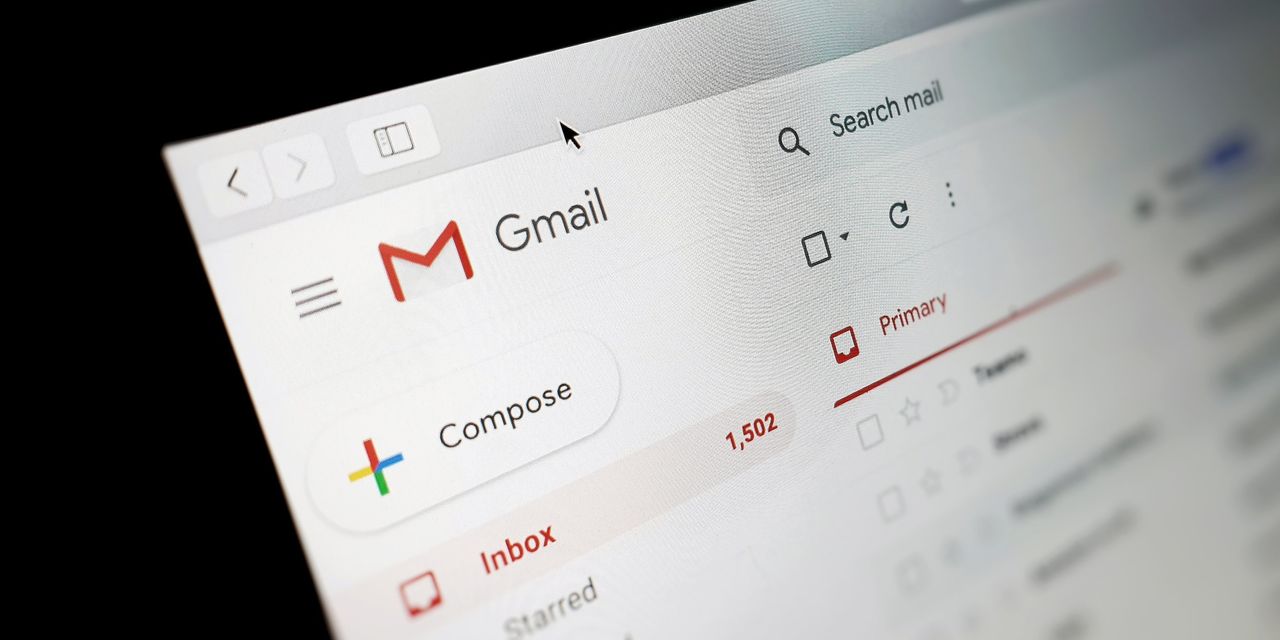More than a dozen Google services, including Gmail and YouTube, were offline in swaths of the globe Monday morning, interrupting access for individuals and businesses.
The
Alphabet Inc.
-owned company’s services showed errors for users attempting to sign in, access their emails or files, according to social-media postings from users. On YouTube, the home page was replaced with an illustration of a monkey with a hammer, with the title, “oops.”
On Google, searches for “Is Google down?” rocketed in popularity.
A Google dashboard that displays the availability of Google services said that in addition to email and storage, apps including its calendar, videoconferencing tools, document-editing service and spreadsheets were offline as of 6:55 a.m. ET.
Service for the affected apps began to resume around 7:35 a.m.
The cause of the outage wasn’t immediately clear. A spokesman for Google didn’t immediately respond to a request for comment.
The outage had an immediate effect on tens of millions of people who have had to stay home on and off for the better part of a year because of the coronavirus pandemic. Remote work and learning have left businesses and individuals more dependent than ever on online services, for which Google is one of the most widely used providers.
Google’s Gmail is one of the most popular email clients globally, and the company’s Workspace office tools, formerly known as G Suite and a competitor to
Microsoft Corp.’s
Office, are popular among businesses and institutions.
“Why g suite why? Why would you crash on a freakin Monday!! Oh wait #2020,” wrote one Twitter user.
In at least one newsroom that uses Google services, a reporter had to use an older form of technology—the telephone—to dictate the first paragraphs of a story on the outage.
Some schools closed for the day. Wayne-Westwood Community Schools in Westland, Mich., gave its roughly 9,800 elementary, middle- and high-school students the day off after a morning of disruption. They rely on Google mainly for classes over Google Meet and for exchanging emails.
“We already lost our window for the beginning of the school day,” said Jenny Johnson, a spokeswoman for the 19-school district, which earlier this year provided its students with Chromebooks and internet hot spots. “This is the new snow day.”
Ms. Johnson doesn’t expect the district to switch to an alternative service at this time, but it is a possibility in the future. “Until today the Google platform had worked great for us,” she said. “Our tech department is always looking for what is the best for our kids so they’ll come up with recommendations.”
The outage inspired Indira Saladi to rethink her physician-staffing business’s disaster plan. “I’m very dependent on Google,” she said. “Most disaster plans are for in case phone networks go down so I need a multi-tier disaster approach.” Her company, Orchard Inc., is located in a Chicago suburb but does business nationwide and relies on Google’s cloud-based applications including Gmail, Sheets and Drive to reach contract workers, physicians and customers. “We no longer keep things on our computers locally,” Ms. Saladi said.
“I was worried about my physicians being at the hospitals they needed to be at” she said, especially given the high demand created by Covid-19. “I couldn’t check their schedules.”
Temporary interruptions to the availability of popular online services are relatively common occurrences, though their impact has increased as more businesses outsource their digital infrastructure and tools to outside businesses, often large internet companies. A decade ago, a
Twitter Inc.
outage—accompanied by an error image dubbed the “fail whale”—might have boosted office productivity. Today, outages can slow some companies to a crawl.
In November,
Amazon.com Inc.
grappled with an hourslong outage tied to its enormous cloud-computing operation that affected operations of many of its clients, such as video-streaming device company
Roku Inc.
In July, apps such as Spotify and Tinder experienced outages for several hours because of what
Facebook Inc.
said was a bug in its software for iPhone users.
In March 2019, some Google services including Gmail were slowed or inaccessible because of what the company called a “cascading failure” that began after its engineers made tweaks to an internal storage service. The same week, services from
Apple Inc.
and Facebook also suffered outages.
Write to Sam Schechner at [email protected] and Sarah E. Needleman at [email protected]
Copyright ©2020 Dow Jones & Company, Inc. All Rights Reserved. 87990cbe856818d5eddac44c7b1cdeb8
















